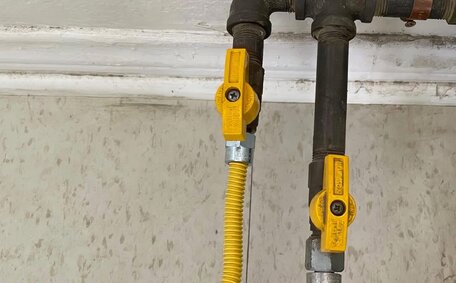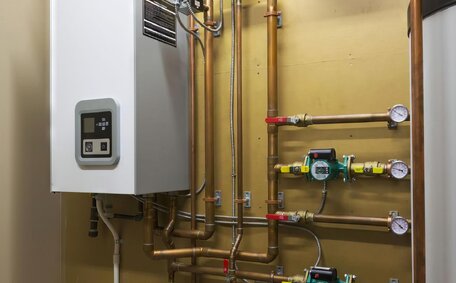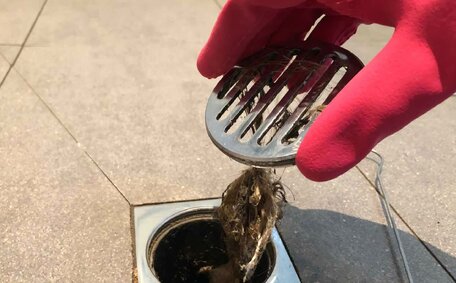With so many options on the market, from electric and gas storage tanks to heat pumps and solar water heaters, it can be overwhelming to figure out which is the best fit for your household.
Whether you need to replace an existing unit or are installing a system in a new home, understanding your family’s hot water usage patterns, peak demand times, and energy efficiency needs will help narrow down the ideal system type and size.
We’ll explore various hot water systems, focusing on their functionality, energy efficiency, and cost. Key considerations in your selection should include fuel type, your local climate, available space, and upfront costs for a viable and cost-effective solution.
Equipped with precise information and expert guidance, you can choose a hot water system tailored to your family’s needs, guaranteeing efficiency and reliable comfort.
Whether you prefer the long-term savings of solar or the immediate convenience of a gas continuous flow unit, this guide helps you understand the critical selection factors for your home.
Whether you need to replace an existing unit or are installing a system in a new home, understanding your family’s hot water usage patterns, peak demand times, and energy efficiency needswater requirements. The amount of hot water needed will depend on the household size, their daily usage routines, and whether the hot water system can meet peak demand times.
Account for the number of residents, your daily routines, and activities needing hot water, such as showering, laundry, and dishwashing, while observing variations between weekday and weekend use.
Peak hot water use typically occurs in the mornings with multiple showers and in the evenings with dishes and laundry. Understanding peak hourly demand is key to accurately sizing your system.
Assess your daily and peak hourly hot water demands by tracking consumption for baths, showers, sinks, dishwashers, and washing machines, utilising litres for local accuracy.
Knowing this essential information guides you in choosing the best hot water system with the right capacity and features for your needs. For example, boosting capacity with an auxiliary gas heater for high-demand times or choosing a continuous flow model to accommodate simultaneous hot water usage.
Comparing Fuel Types: Electric, Gas, Solar, Heat Pumps
The type of system that matches your water use, along with fuel options such as electric or gas, affects your budget and household needs. Each option, from hybrids to solar and heat pumps, has its pros and cons.
Electric hot water systems heat water within an insulated tank, providing a steady supply as needed. These units have lower purchase costs but tend to be costlier to run over time, especially with fluctuating electricity rates.
Gas hot water systems utilise natural gas or propane, available as storage or continuous flow models, and often offer lower operating costs. However, initial outlays for installation and gas infrastructure might be higher if they need to be established.
Gas systems also require ventilation to avoid carbon monoxide buildup.
Solar heat pump hot systems harness the sun’s free warmth, efficiently heating your system’s water through rooftop collectors into a storage tank.
This sustainable energy option, though more costly upfront, can be economical over time. Solar hot water systems excel in sunny environments and are ideal for homes receiving plenty of sunlight, with gas or electric boosters as potential backups.
Eco-friendly heat pump water heaters absorb heat from the air, offering greater energy efficiency than traditional electric models. Yet, their performance may drop in cold conditions, and they are more expensive initially than regular electric tanks.
It’s crucial to consider local availability and costs of fuel types, climate impact on performance, and budget for purchase and operation. A professional plumber can evaluate the pros and cons for your specific situation.
Storage vs Instantaneous Water Heaters
When choosing a water heater, it’s essential to understand the differences between storage water heaters and tankless, or instantaneous, models.
Insulated storage water heaters, including heat pump models, heat and retain water, available in electric, gas, solar, and heat pump options at competitive prices. These systems are more affordable initially but may lose heat gradually and require regular maintenance.
Tankless heaters, by contrast, heat water directly as it flows through the device, foregoing the need for a storage tank.
Storage water heaters suit larger households with high and overlapping demands, such as for showering. Conversely, tankless systems are suited to smaller homes, providing immediate hot water and addressing the issue of shortages effectively.
Choose between storage and tankless models by assessing your typical hot water needs; larger families may prefer storage systems, while smaller homes might value the energy and space savings of tankless. A professional’s advice can assist in selecting the correct size for effective performance.
A local plumbing expert can assess your daily usage patterns and recommend the most suitable system - whether storage or instantaneous - for reliably meeting your hot water needs.
Energy Efficiency Ratings
Ensure you compare energy efficiency ratings when selecting a new hot water system, which in Australia are shown on labels with a 0 to 10 star scale.
Choosing a system best aligned with a higher star rating, say a 5, 6, or even a 7+ star model, can lead to substantial energy bill savings over the years. High efficiency systems save more than just money by reducing wasted standby heat loss and using less energy to heat water. This saves you money while also being better for the environment.
New heat pump models also rate quite high.
Over a 10-year lifespan, a higher rated system was very likely to net you significant savings on your energy bills compared to less efficient alternatives. With rising energy prices, maximising energy efficiency is a wise investment that leads to long term savings.
During the selection, converse about the type hot water system’s energy ratings with your plumber. Choose the most efficient system that suits your household’s hot water usage and helps save money on bills.
Installation Considerations
Installation requirements are crucial when choosing a new hot water system, as the system type, fuel source, size, and installation location influence the installation process’s complexity.
Professional installation by a licensed plumber is usually required for gas, electric, and solar systems. Considerations include existing connections, venting, space constraints, and for solar systems, the roof’s orientation and panel placement.
With tank water heaters, the large unit size needs to be accommodated and properly supported. Ventilation is required for gas models. Heat pumps, although compact, have strict clearance requirements and work best when centrally located in the home.
Advanced technologies such as smart, WiFi-enabled systems demand internet access during installation. Thorough and proficient installation is essential across all system types for optimal functionality, safety, and adherence to regulations.
Consider the designated location for the water system, whether suitable ducting or plumbing exists, and the preference for an outdoor or indoor unit. Evaluate the space and seek advice on any necessary modifications to electrical wiring, gas lines, or drainage. Planning for installation helps guarantee seamless integration of the new system.
Installation requirements are crucial when choosing a new hot water system, as the system type, fuel source, size, and installation location influence the installation process’s complexity.
Considerations include existing connections, venting, space constraints, and for solar systems, the roof’s orientation and panrict clearance requirements and work best when centrally located in the home.
Cost Analysis: Initial Investment vs Long-Term Savings
Initial costs for storage water heaters — electrip>High efficiency gas tankless or solar systems often have the lowest lifetime costs due to lower energy usage. Electric heat pump systems also have very low operating expenses. Standard electric or gas storage tank systems can incur $300-$600 more in anble energy rebates, and opting for an energy-efficient unit might lead to utility discounts.
In assessing affordability, factor in long-term savings. An initially pricier but more efficient system can recoup costs over 5-10 years with reduced energy billing. Confer with a plumber to balance initial investment against operational savings throughout the system’s lifespan.
Conclusion
Choose the optimal hot water system by matching your household needs with the right heater type. Think about water use, peak periods, fuel type, energy ratings, expenses, and the installation process. Efficient systems such as gas, solar, and heat pump options can provide considerable savings over time, along with a consistent hot water supply.
Select the optimal system by analysing your daily usage, checking fuel availability, and consulting a plumbing expert for advice on efficiency and value.






